Payroll And Salary Course in Singapore

About This Payroll And Salary Training Course
Payroll And Salary Course in Singapore
In dealing with monetary employee compensation, salary and payroll are always included in discussions. Salary, also called remuneration, is what the employee receives as payment for their services. Payroll is a broad term that could refer to a document containing the amount of money paid to the employees or a process of calculating employee wages.
Course Schedule
| COURSES | DATES | TIME | VENUE | COUNTRY | REGISTRATION |
|---|---|---|---|---|---|
| Payroll Course | 29 April, 2024 - 30 April, 2024 | 9 am to 5 pm | Online / Face to Face | Singapore | |
| Payroll Course | 31 May, 2024 - 1 June, 2024 | 9 am to 5 pm | Online / Face to Face | Singapore | |
| Payroll Course | 1 July, 2024 - 2 July, 2024 | 9 am to 5 pm | Online / Face to Face | Singapore | |
| Payroll Course | 31 July, 2024 - 1 August, 2024 | 9 am to 5 pm | Online / Face to Face | Singapore | |
| Payroll Course | 31 August, 2024 - 1 September, 2024 | 9 am to 5 pm | Online / Face to Face | Singapore | |
| Payroll Course | 29 September, 2024 - 30 September, 2024 | 9 am to 5 pm | Online / Face to Face | Singapore | |
| Payroll Course | 29 October, 2024 - 30 October, 2024 | 9 am to 5 pm | Online / Face to Face | Singapore | |
| Payroll Course | 29 November, 2024 - 30 November, 2024 | 9 am to 5 pm | Online / Face to Face | Singapore | |
| Payroll Course | 30 December, 2024 - 31 December, 2024 | 9 am to 5 pm | Online / Face to Face | Singapore |
Who Should Attend This Payroll And Salary Workshop
This Payroll And Salary workshop is ideal for anyone who would like to gain a strong grasp and improve their Payroll And Salary.
All Staff Within An Organisation
Managers
Team Leaders
Executives
Assistants
Officers
Secretaries
Group Size For This Payroll And Salary Training Program
The ideal group size for this Payroll And Salary course is:
Minimum: 5 Participants
Maximum: 15 Participants
Course Duration For This Payroll And Salary Skills Course
The duration of this Payroll And Salary workshop is 2 full days. Knowles Training Institute will also be able to contextualised this workshop according to different durations; 3 full days, 1 day, half day, 90 minutes and 60 minutes.
2 Full Days
9 a.m to 5 p.m
Payroll And Salary Course Benefits
Below is the list of course benefits of our Payroll And Salary course
- Have a better understanding of payroll and salary
- Appreciate the importance of knowing payroll and salary
- Be able to differentiate between payroll and salary
- Understand the salary structure and how it works
- Know the basics of a payroll system
- Comprehend the important elements of a payroll system
- Be able to create a payroll system for a company
- Know how to effectively implement payroll system
- Be equipped of the payroll calculation methods and where to use them
- Meet professional standards in making a payroll system
- Gain knowledge of the legal matters for payroll and salary
- Be motivated to make a payroll system that benefits the employers and employee
Payroll And Salary Course Objectives
Below is the list of course objectives of our Payroll And Salary course
- Define payroll and salary
- Discuss the importance of payroll and salary in the corporate world
- Compare how payroll and salary are different with each other
- Discuss what influences the salary structure
- Explore the basics terminologies used in payroll and salary
- Identify the key elements of a payroll system
- Discover how to create an effective payroll system
- Discuss ways to implement payroll system in a company
- Demonstrate how to use necessary calculation methods in a payroll
- Examine the considerations in making payroll system
- Discuss legal matters related to payroll and salary
- Understand the rights of employers and employees regarding payroll
Course Content For This Payroll And Salary Training Course
Below is the list of course content of our Payroll And Salary training course
- What is payroll and salary
- Why is it important to understand payroll and salary
- What is the difference between payroll and salary
- What are the determinants of a salary structure
- Discussion about basic salary, total salary and allowances
- What are the components of a payroll system
- How to create a payroll system
- How to effectively administer payroll system
- How to use payroll calculation methods
- Consider legislation in decision-making of payroll matters
- What are the legal compliance and practices
- What are the rights of employers and employees on matters relating to benefits
Payroll And Salary Value Added Materials
Each participant will receive the following materials for the Payroll And Salary course
Payroll And Salary Learner’s Guide
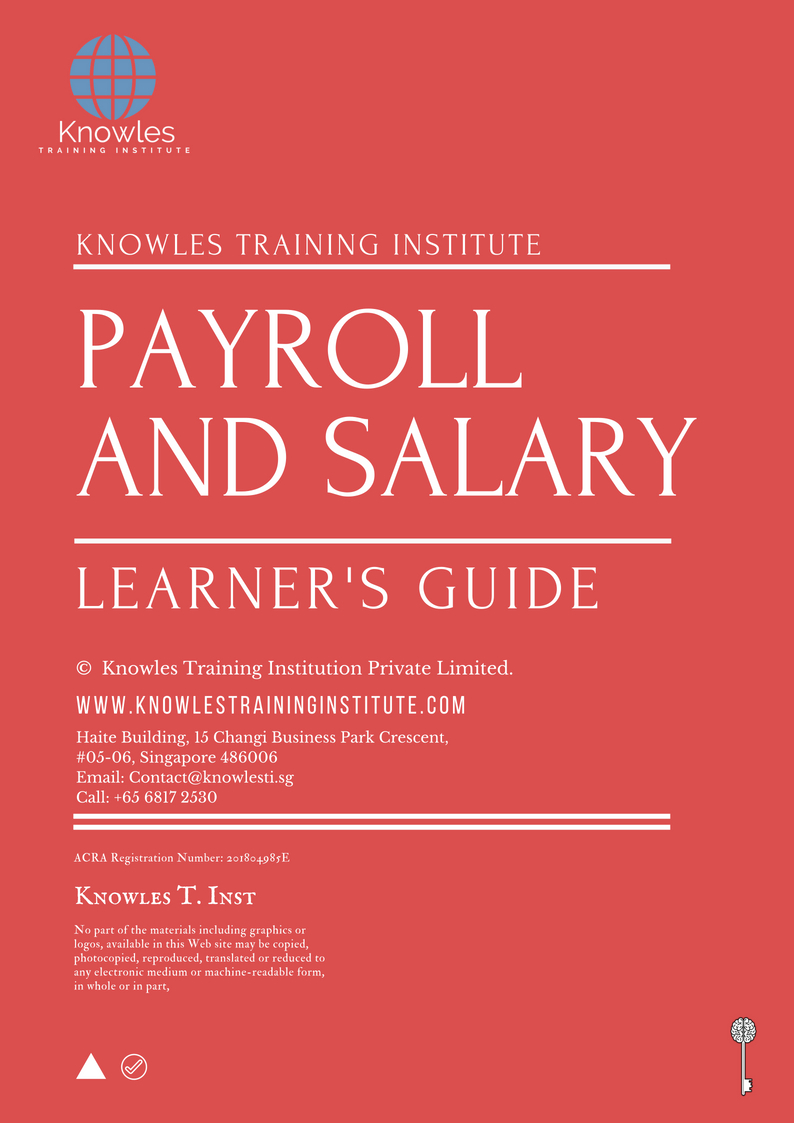
Payroll And Salary Key Takeaways Notes
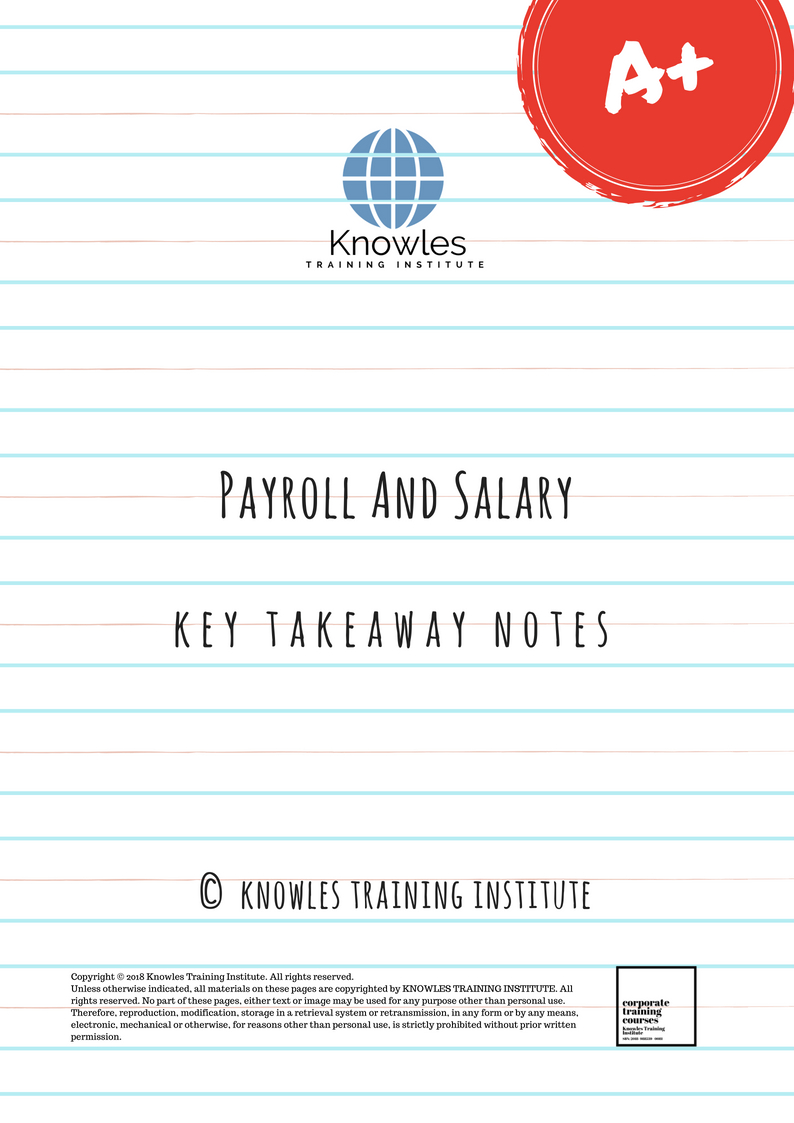
Payroll And Salary Essentials Ebook
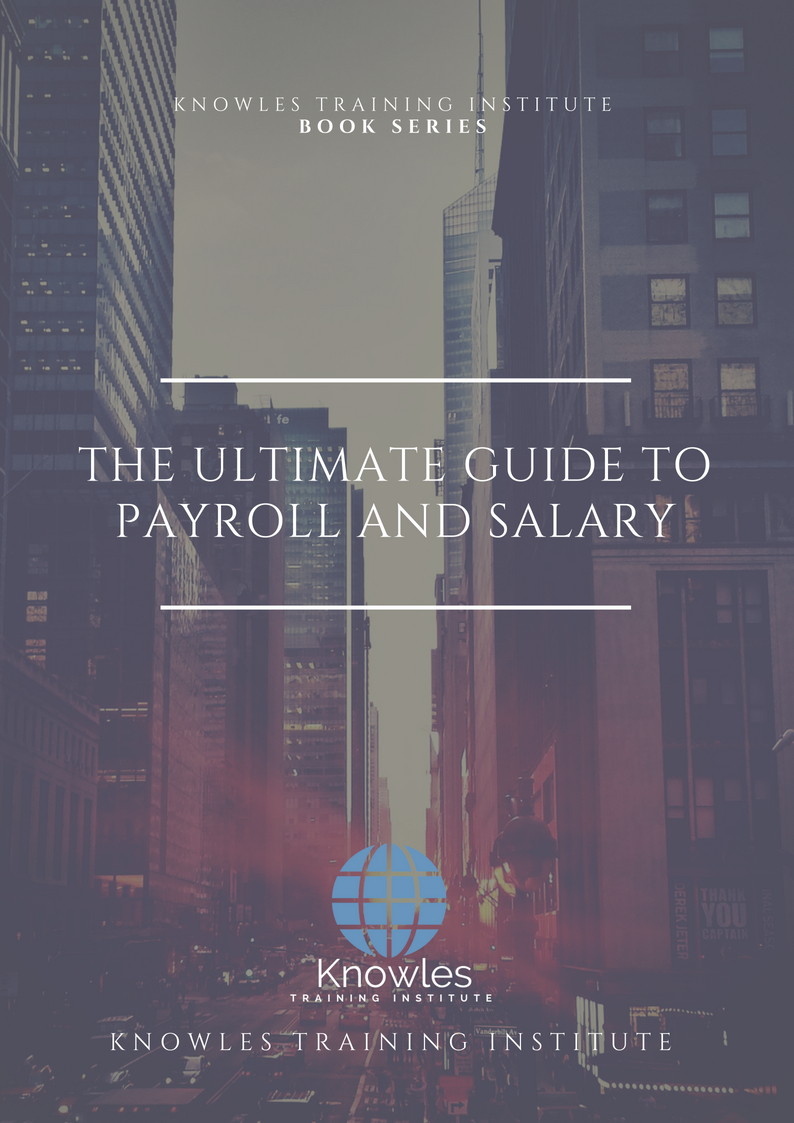
Payroll And Salary Course Handouts
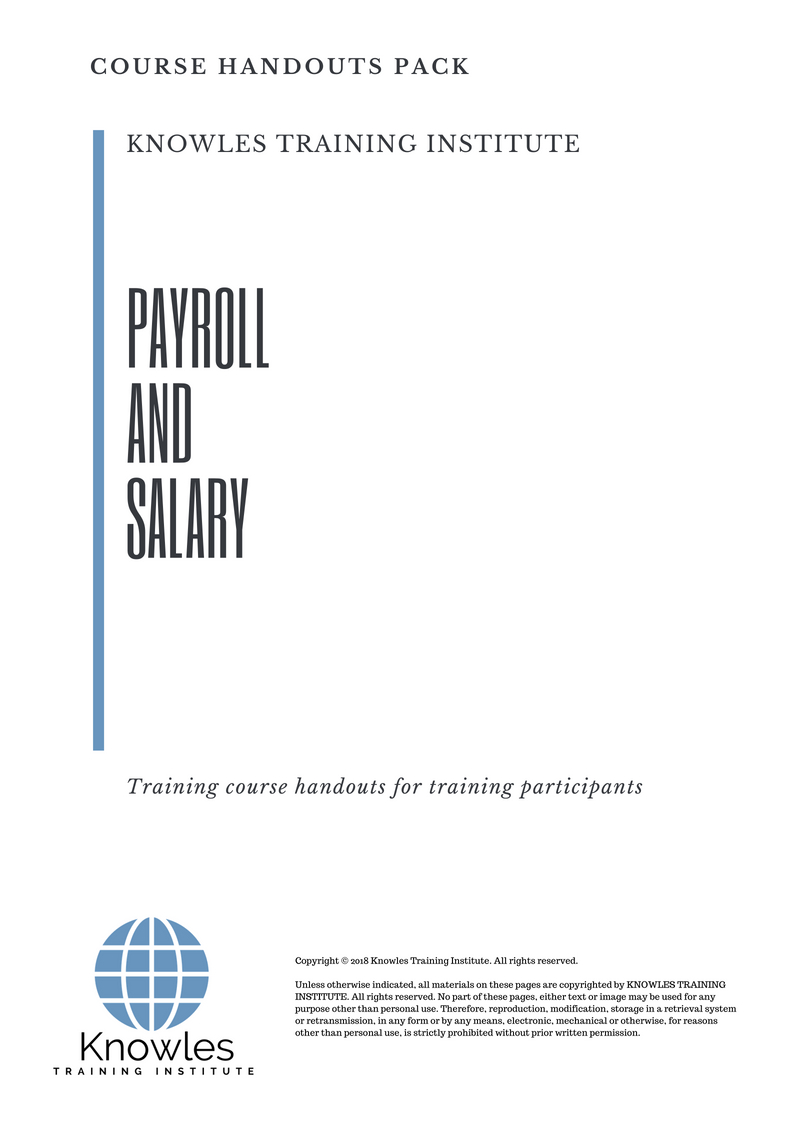
Payroll And Salary 30-Day Action Plan
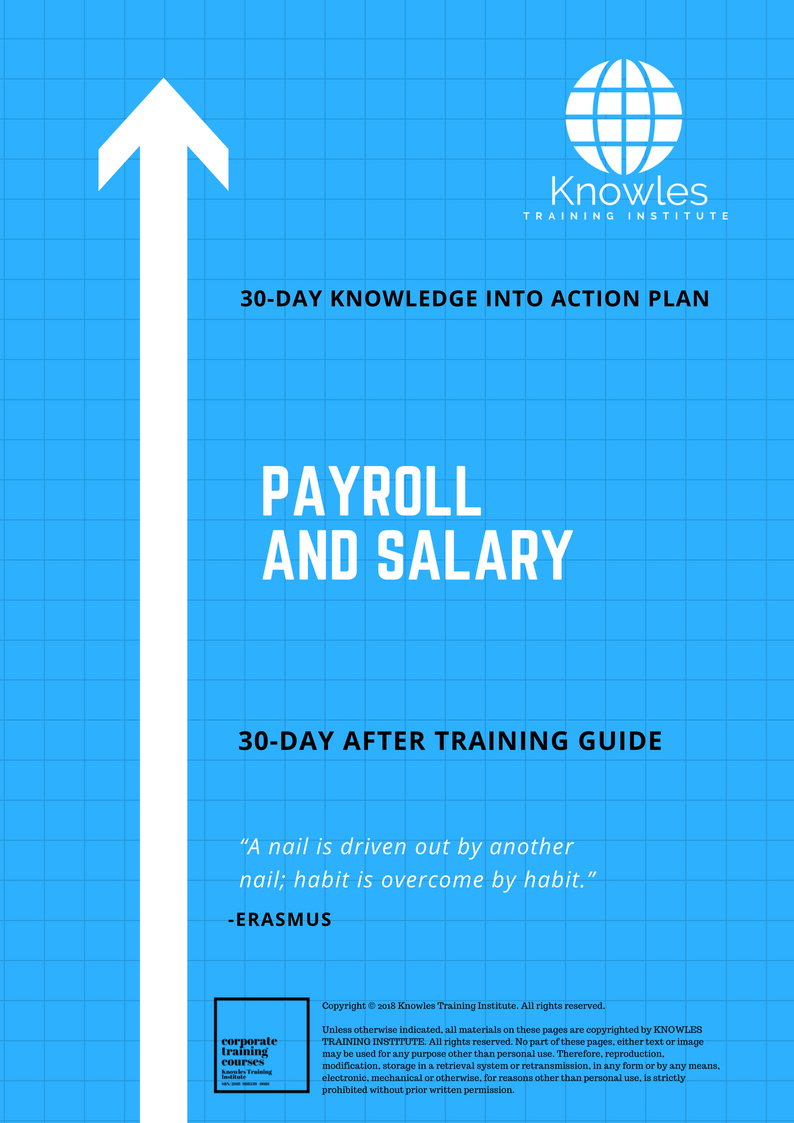
Payroll And Salary MindMaps Pack
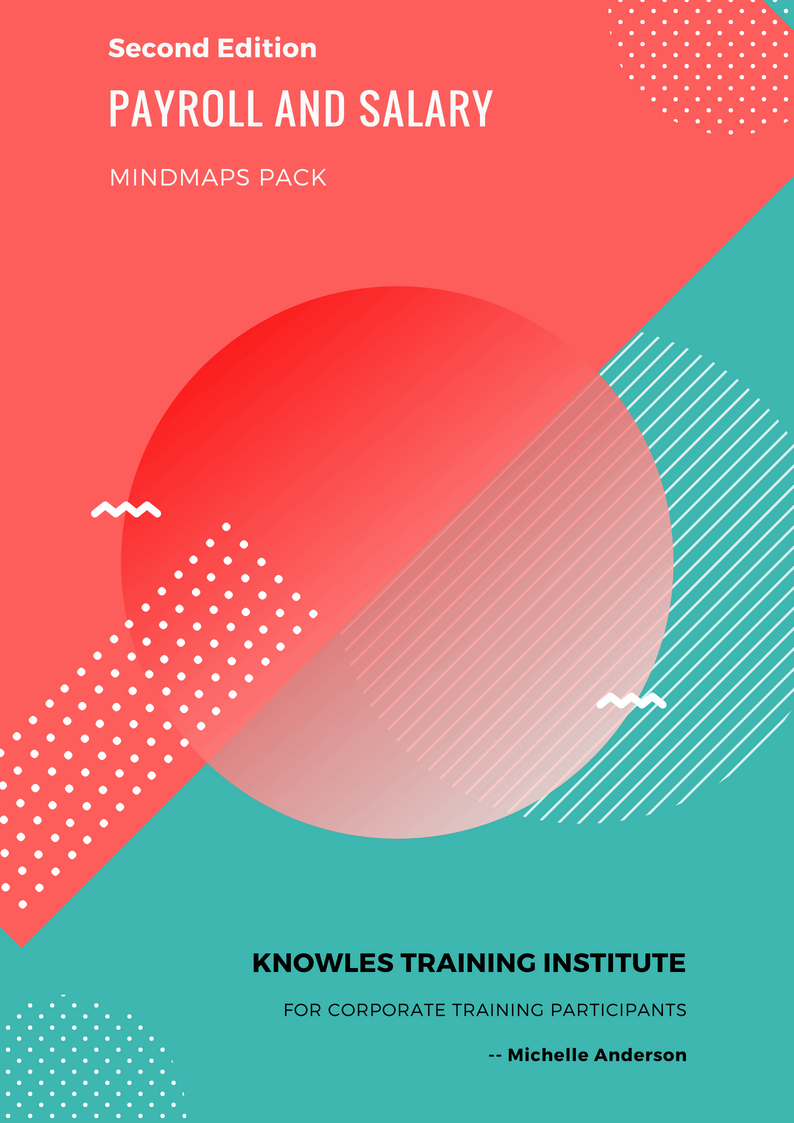
Payroll And Salary PPT Slides Used During Course
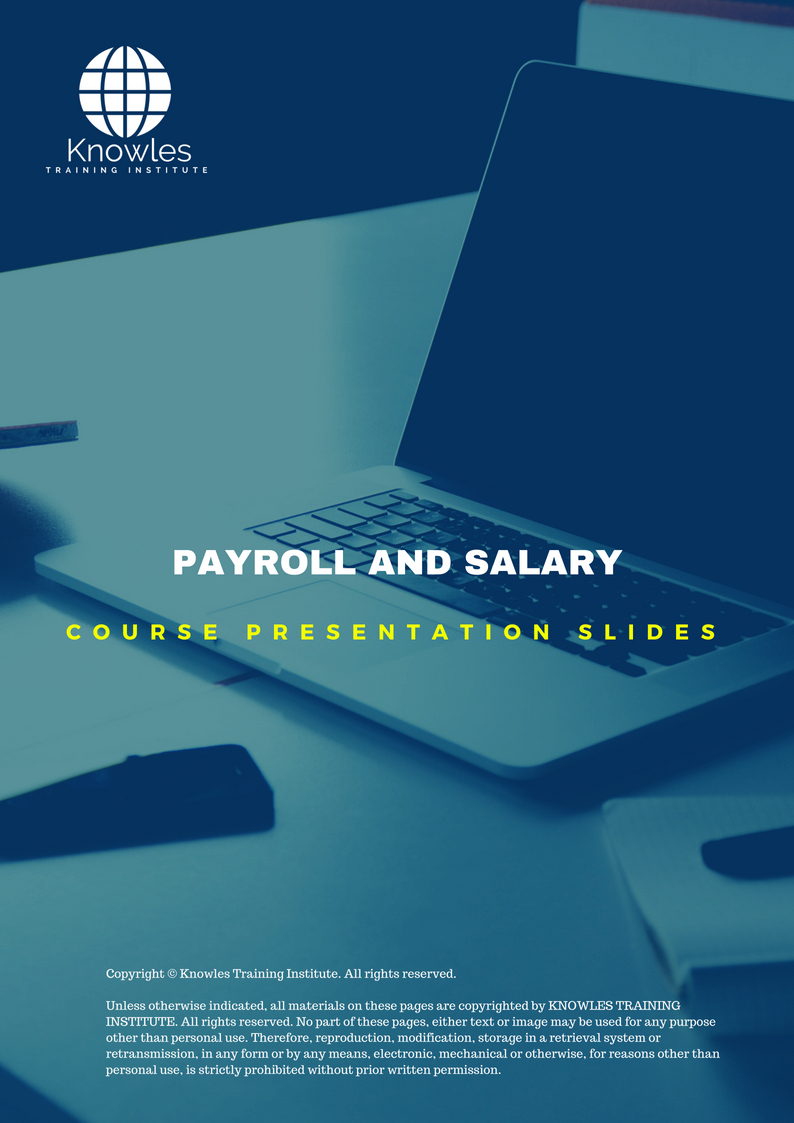
Payroll And Salary Long-Term Memory Flashcards Pack
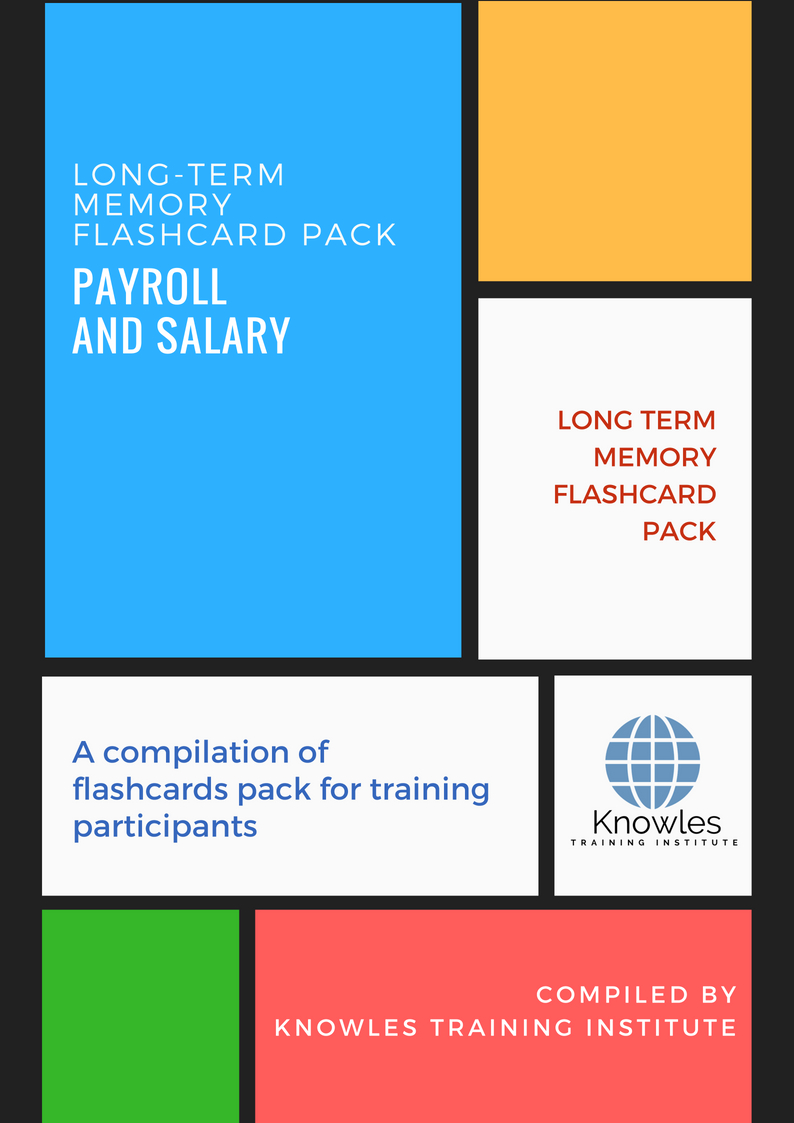
Payroll And Salary E-Learning Course
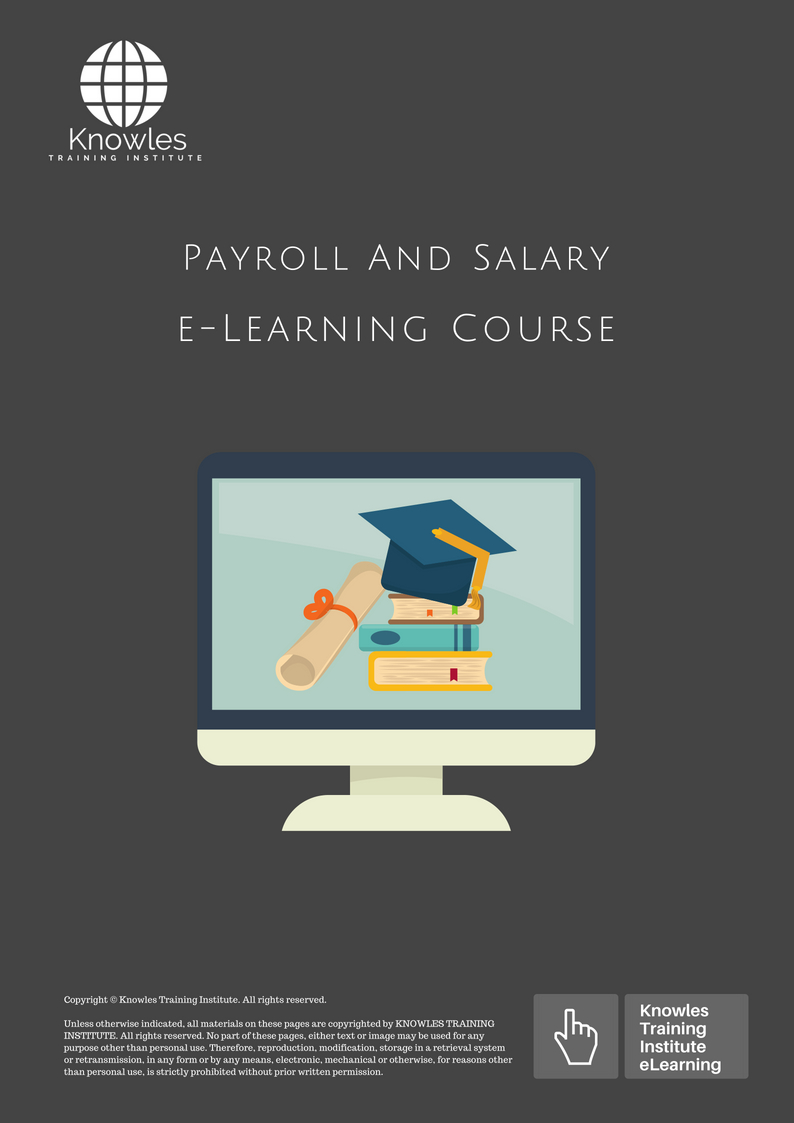
Payroll And Salary Online Video Course

Payroll And Salary Essentials Audiobook
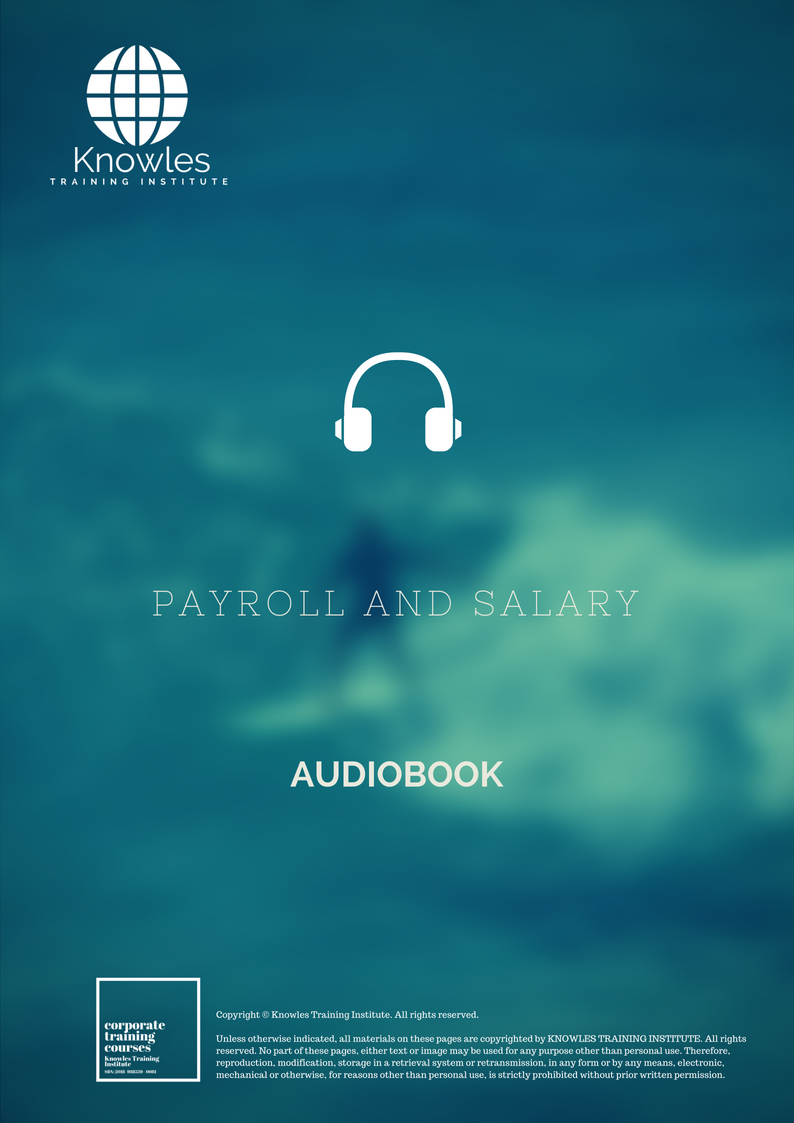
Payroll And Salary Infographics Pack
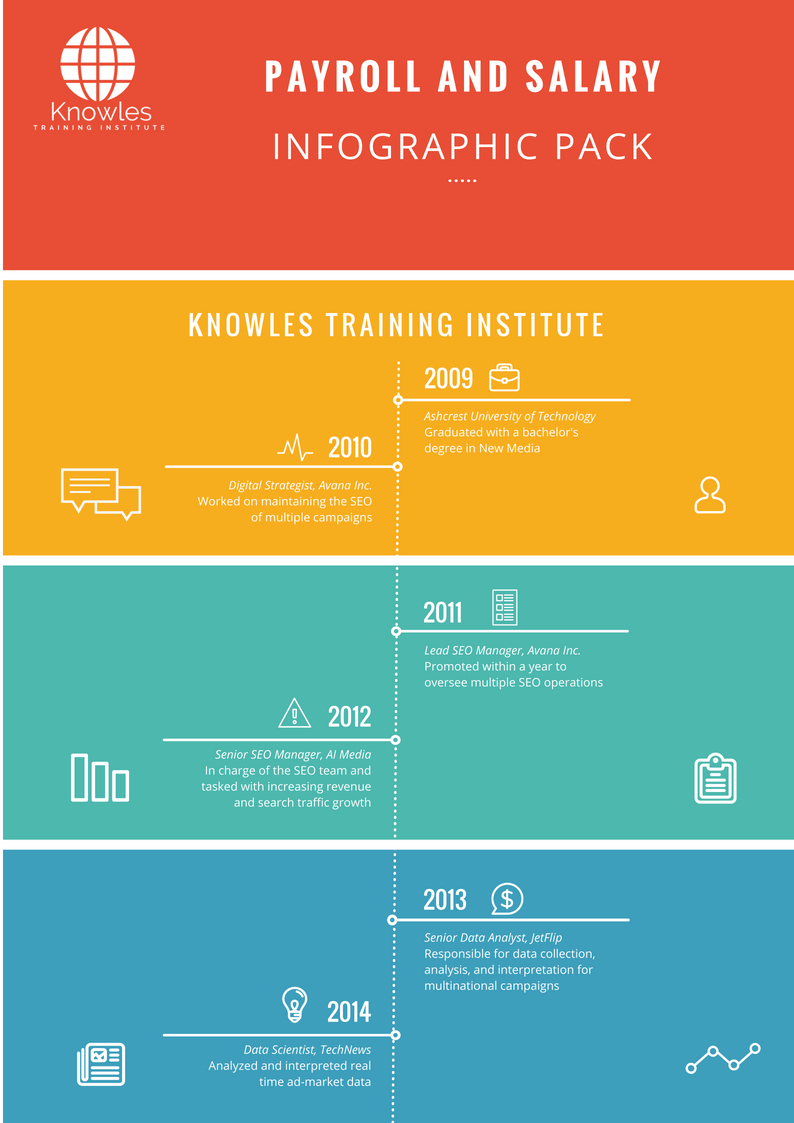
Payroll And Salary Certification
Each course participant will receive a certification of training completion

Course Fees
There are 4 pricing options available for this Payroll And Salary training course. Course participants not in Singapore may choose to sign up for our online Payroll And Salary training course.
- SGD 1,334.96 For a 60-minute Lunch Talk Per Session.
- SGD 584.96 For a Half Day Course Per Participant.
- SGD 884.96 For a 1 Day Course Per Participant.
- SGD 1,184.96 For a 2 Day Course Per Participant.
Discounts available for more than 2 participants.
Course Discounts, Fundings & Subsidies
We have the following discounts, fundings & subsidies for this Payroll And Salary training course

Upcoming Payroll And Salary Training Course Schedule
Contact us for the latest Payroll And Salary course schedules:
Phone: +65 6714 6663
Email: contact@knowlesti.com
Message:
Download Payroll And Salary Course Brochure
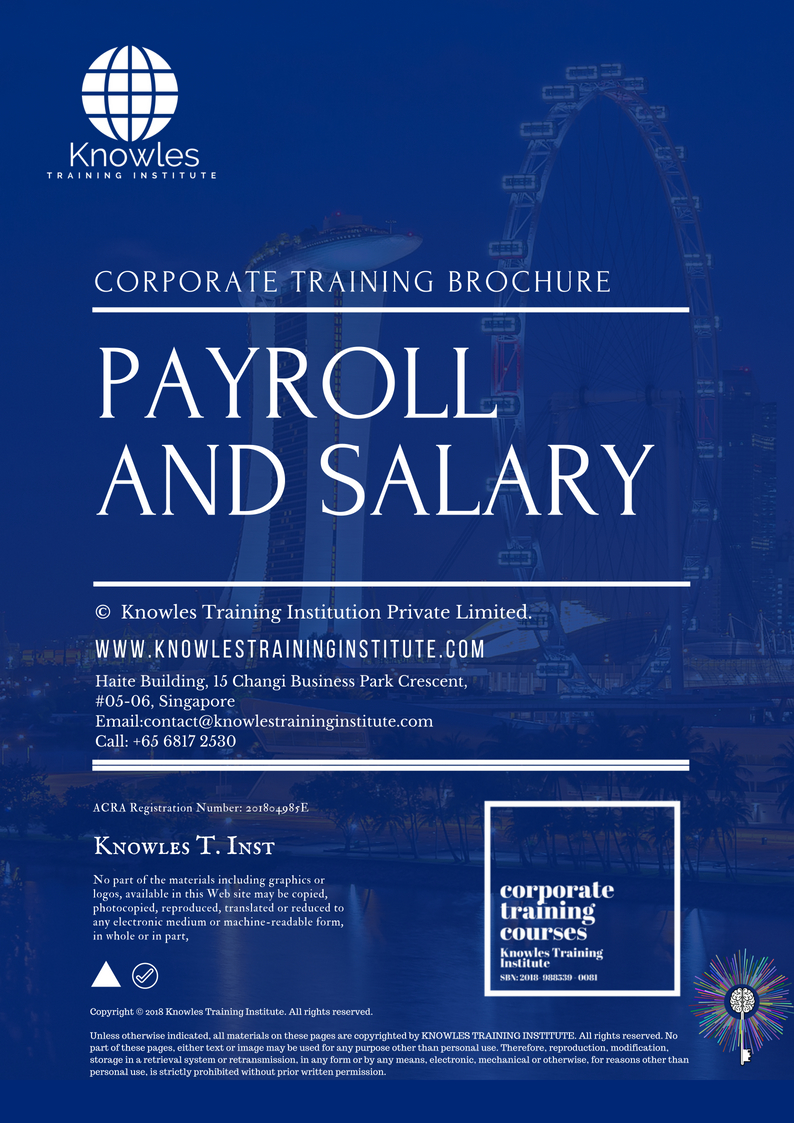
Request for this Payroll And Salary course brochure. Fill up the short information below and we will send it to you right away!
Post-Training Support: A vast majority of training does not have any effect beyond 120 days. But to work, training has to have a strong pre- and post-training component. Post-training reinforcement consequently helps individuals to recall the understanding and ask questions.
Blended Learning: Learning does not occur in the classroom. Virtually everybody prefers distinct ways of learning. Successful learning should have a multi-channel, multi-modal strategy.
We Understand The Industry: Similarly, we’ve got a profound comprehension of the business, business design, challenges, strategy and the that our participants are in and have designed the courseware to cater to their professional needs.
Course Content: Knowles Training Institute’s material is relevant, of high quality and provide specific learning outputs. As a result, Participants will leave the training course feeling as they have gained a strong understanding and will also be in a position to execute what they have learned sensibly.
Course Development — The workshop modules follow a systematic and logical arrangement. Therefore, this structure helps to ensure that the course material allows the facilitators to deliver the course in a logical arrangement. Consider the subjects as building bricks into learning, our facilitators slowly build towards a comprehensive picture of this entire topic.


Course Enquiries

Fill up the form and we will get back to you in less than 1 working day.
Alternatively, give us a call to have one of our training consultants contact you. Our corporate training courses can be contextualized to meet your organization’s training needs. Leverage on our large pool of professional trainers and consultants for your organization’s training needs.
Office Address: 60 Paya Lebar Rd, #07-54 Paya Lebar Square, Singapore 409051
Office Phone: +65 6714 6663
Email: contact@knowlesti.sg
We Guarantee 100% Privacy. We Respect Your Privacy. Your Information Will Never Be Shared.
Questions
They can cover worker salaries, health insurance or similar benefits, payroll taxes paid by the employer on behalf of the employee, bonuses, and commissions.
Payroll is necessary for a business that has employees. It refers to the process of paying employees and is also associated with the employee’s relevant information for administering payroll. It can also refer to the amount being paid to employees during each pay period, or the process of calculating and distributing wages and taxes.
Payroll processing refers to the job of managing the payment of wages by a company to its employees. Payroll administration is a step by step process that includes aggregating employee time information for a specified period, managing benefits & deductions, and disseminating employee pay for that specified period.
The number-crunching and processes that are performed by an employer, to determine an employee’s pay, define payroll calculations. An employer tabulates payroll by measuring gross wages and payroll deductions to obtain the net pay for the employee.
There exist numerous differences between salary and payroll. Salary refers to the amount of pay an employee deserves. Payroll refers to the system that employers use to prepare salary payments. It is a significant workplace function for employees to obtain their earned compensation.
What is the Function of Payroll? The function of payroll is to pay employees and workers correctly. Duties include balancing and reconciling payroll data and paying and declaring taxes. The payroll department processes salary deductions, account keeping, and confirming the authenticity of pay data.
The word “payroll” is a composite noun formed by the verb “pay” and the noun “roll.” The first reports of the use of the word “payroll” as a composite noun appeared about 1740 to represent the entire amount paid to a company’s employees over a specified period.
Payroll refers to how employees receive their salary. Functions include balancing and arranging payroll data and remitting and reporting taxes. The payroll department produces payroll checks, sustains compliance with tax laws, reports paperwork for new hires and maintains existing employee files.
Basic salary is the amount given to an employee before any non-monetary benefits are added or taken off. It also does not take into account deduction because of superannuation schemes or extra pay due to overtime or a bonus. Basic salary also does not include allowances, such as the internet for home-based workers or contributions to phone usage.
Within a company, payroll is the incorporation of all of the financial records of their employees’ salaries, wages, bonuses and deductions. In accounting, the term payroll means the amount paid to employees for the services they have done for the organisation for a specified period.
One of the most critical tasks is the processing of their payroll. Employees need to be able to rely on being paid consistently without delays. Payroll plays a huge role in maintaining employee’s moral to the financial stability of the company regardless of the size of the company.
Payroll and human resources are two separate areas of a business. Human resources primarily deal with worker relations, while payroll handles the pay of employees.
The length of time between payroll administration is referred to as the payroll cycle. For instance, if an employer processes payroll every month, each month is considered a new payroll cycle. This cycle may include processes for noting time and attendance and converting that data into payroll calculations and disbursements.
The main difference between salaries and wages is that a person is paid a salary that is a fixed amount per pay period, whereas a wage earner is paid by the hour—the total of these fixed payments for a full-year sum to the annual salary earned by an employee.
A wage is paid to workers on an hourly basis. If a worker works more than a certain number of hours, the employee will get overtime pay. On the other hand, Employees that earn a salary often put in more than 40 hours per week, but get no overtime pay.
How to Process your business Payroll in the United States:
- Step 1: Have all employees complete a W-4 Form.
- Step 2: Find or sign up for Employer Identification Numbers.
- Step 3: Choose your payroll schedule.
- Step 4: Calculate and withhold income taxes.
- Step 5: Pay taxes.
- Step 6: File tax forms & employee W-2s Forms.
Payroll Job Purpose:
The purpose of payroll is to maintain employees’ payroll records. This process involves calculating wages and relevant deductions based on worker attendance and their timesheets. Then this payroll information is recorded into a central system for processing. Finally, the payroll department will issue employees’ checks and salary summaries.
The calculation steps for payroll are as follows:
- Notify employees to fill in their timesheets by the last day of the payroll period.
- Collect timesheets.
- Review and approve timesheets.
- Enter hours worked.
- Enter wage rate changes.
- Calculate gross pay.
- Calculate net pay.
- Review.
Payroll calculation differ across countries, but have a general calculation similarity. In the example of India, employers calculate basic salary by adding the following items together: Basic Salary, Dearness Allowance, HRA Allowance, conveyance allowance, entertainment allowance, and medical insurance. Subsequently, income tax and provident fund contributions will be deducted from the basic salary to give the net salary.


